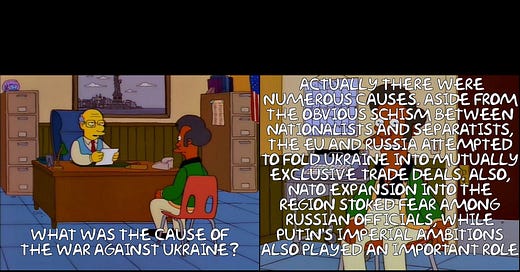Russia has fought different wars for different reasons
NATO expansion doesn't explain all of Russia's aggression, but it surely explains some of it.
People who don’t know the history are easily susceptible to propaganda. They will believe that Russia attacked Ukraine because of “NATO’s expansion” or the Revolution of Dignity. Remember the "special military operations" in Transnistria, part of Moldova in 1992, and Abkhazia and South Ossetia, parts of Georgia, in 1993, then again Georg…
Keep reading with a 7-day free trial
Subscribe to Carl Beijer to keep reading this post and get 7 days of free access to the full post archives.





